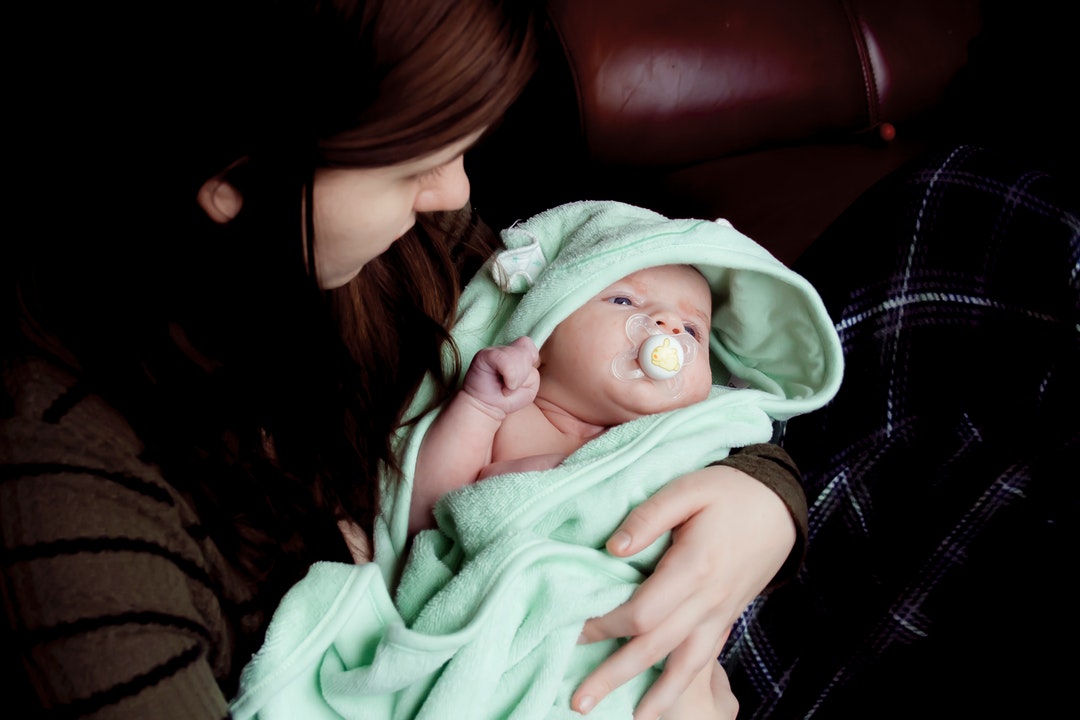Having a baby can be an overwhelming experience. With huge life changes and massive hormonal shifts, it’s normal for new mothers to experience the blues. Sometimes those feelings last longer and are more severe, however. It’s important to know the difference between baby blues and post-partum depression.
The baby blues generally aren’t a cause for concern. Lasting symptoms are, however. Post-partum depression is a mental health issue and shouldn’t be taken lightly. To learn more about post-partum depression and the baby blues, read on.
The Baby Blues
Many women experience mood swings and negative feelings, a period often referred to as the “baby blues.” In fact, these symptoms affect 70-80% of women after delivery. These feelings usually only last a few weeks.
The symptoms of the baby blues typically begin three to five days after childbirth. New mothers may experience mood swings, feeling happy and calm one minute, then sad or anxious the next.
Mild depression that occurs during this short period is normal and common. It’s also normal to experience appetite loss and difficulty concentrating.
Other symptoms of the baby blues include:
- Sudden crying or tearfulness without reason
- Irritability
- Impatience
- Fatigue
- Feelings of sadness or loneliness
- Mood changes
Disrupted sleep patterns accompany the baby blues as well. It’s likely that this has a significant effect on the mother’s overall state-of-mind. It may be difficult to sleep both at night and during the day when the baby is napping. Restlessness and anxiety can make falling asleep and staying asleep a struggle for the first few weeks.
What Causes the Baby Blues?
While the exact cause of the baby blues isn’t known, it has some likely contributors. Some of these are physiological, while others stem from external factors.
Hormonal changes may play a large role in the development of the baby blues. Huge hormonal shifts occur during pregnancy and again after childbirth. These shifts can have a significant effect on the emotional state of a new mother.
Welcoming a new baby into the home requires an intense period of adjustment that can feel overwhelming. This is true even for mothers who were well-prepared for the event. Bringing a newborn home turns a household’s routine on its head.
In addition to hormones and routine adjustment, new mothers will almost always experience sleep deprivation. Whether it’s from sleeplessness or a frequently waking baby, these mothers are often overtired for the first few weeks after birth.
Pregnancy and childbirth also present many body changes that can be distressing to new mothers.
When the Blues Won’t Go Away
While experiencing the baby blues is a normal occurrence, having these feelings for longer than a couple of weeks isn’t. If abnormal feelings of moodiness, emotional upset, and exhaustion persist, it could be something more serious.
The Difference Between Baby Blues and Post-Partum Depression
While the baby blues are short-lived, post-partum depression lasts much longer. It can last for weeks or even months after the baby is born. This has an enormous impact on a new mother and her family. It affects quality of life and can interfere with the bonding process.
Post-partum depression
The symptoms of postpartum depression affect almost every aspect of your life. A period of depression after delivery is normal, but sometimes depression occurs weeks or months later and is more severe and persistent.
If depression occurs within six months of having a baby, this may indicate post-partum depression.
Symptoms of Postpartum Depression
Knowledge is key to understanding the difference between baby blues and postpartum depression symptoms. It helps to learn more about postpartum symptoms so help can be sought if necessary.
Sadness
Post-partum depression often presents as feelings of sadness and loneliness. These feelings can persist even when a new mother’s life situation is good and there seems to be nothing wrong.
In addition to these negative feelings, many who suffer from post-partum depression experience frequent tearfulness or crying. This can happen suddenly and for no apparent reason.
Irritability and Anxiety
Post-partum depression often plagues new mothers with restlessness, irritability, and anxiety. All of these symptoms put women on edge, negatively affecting relationships and making normal activities seem difficult.
Other Negative Feelings
In addition to feeling sad and anxious, many mothers with post-partum depression struggle with feelings of hopelessness, guilt, and worthlessness. Loss of interest in things that were once enjoyable is common. This can, unfortunately, lead to the feeling that life is meaningless or not worth living.
Feeling this way can be damaging. It has a negative impact on daily life and has the potential to lead to destructive or suicidal thoughts.
Difficulty Bonding
A particularly distressing symptom of post-partum depression is the lack of interest in the baby. This can have a negative impact on the bonding process between the infant and mother. It can also damage the mother’s self of worth, as she feels guilty about the disinterest and questions her mothering abilities.
Disrupted Sleep
Post-partum depression frequently leads to sleep disruption. This can present as difficulty falling asleep or staying asleep. Additionally, some women may find that they’re sleeping more than they usually do.
Physical Symptoms
Post-partum depression can have noticeable physical effects. Many women with post-partum depression experience:
- Appetite loss
- Weight loss
- Weight gain
- Fatigue and lack of energy
These persistent symptoms are indicative of the more serious post-partum depression in new mothers.
Help and Hope
New mothers who struggle with post-partum depression don’t have to suffer in silence. In addition to counseling and medical intervention, they can:
- Set aside time for self-care
- Maintain a support system of family and friends
- Get help with household duties and errands
- Keep a diary of emotions and achievements to monitor progress
- Eat a wholesome diet and exercise regularly
New mothers should always talk about what they’re feeling and reach out for help when they need it. Having a baby is a huge change and support is essential.
Getting Back to Normal
The baby blues won’t last forever, and post-partum depression can be treated. Recognizing the difference between baby blues and post-partum depression is key to getting the right kind of help.
For more great information for women, please feel free to check out our other blog posts.











